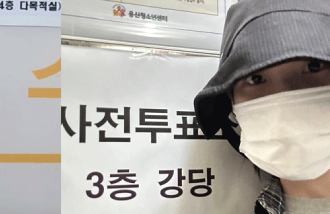[Opinion] China Must Soften Stance on N. Korean Asylum Seekers
[Opinion] China Must Soften Stance on N. Korean Asylum Seekers
Posted August. 18, 2002 22:47,
Korea and China will mark the 10th anniversary of their diplomatic tie on August 23. To celebrate their relationship for the past decade, the foreign affairs ministers from the two countries earlier met in Seoul on the 2nd and agreed to build a closer relationship. The future, however, seems uncertain as well as bright. The potentially volatile issue is Chinas handling of North Korean asylum seekers who fled their famine-stricken country.
Tens or hundreds of thousands of North Koreans are now believed to live in China after defecting their country. They are different from political asylum seekers protected under the international law of refugees. Most of them fled their country for food to eat not for political freedom.
The way the Chinese government treats them, however, changes the nature of the issue. Earlier when North Koreans began to hunker down in China, Beijing turned a blind eye since in the past during the Great Leap Forward movement and Culture Revolution, a number of poverty-stricken Chinese had also crossed the border towards North Korea. As the number of North defectors increased rapidly and Pyongyang demanded repatriation citing a mutual pact, however, the Chinese government began to stamp down on those hiding in China.
Facing the clampdown, North defectors are now forced to make new choices. First, many of them risk their lives to go to South Korea or some other countries where they will get citizenships and living subsidies. So far some 1,400 North Koreans have arrived in Seoul, and while taking refugees they became political asylum seekers. Some choose to give up escaping and stay in China falling into virtual slavery. Some others become outlaws to make livings out of the authorities radar. And unlucky ones get caught and repatriated to North Korea.
I demand the Chinese government stop repatriating North defectors and instead grant them temporary stays, while cooperating with the international society to offer them language and vocational trainings for jobs so that they can go back to the North once the economy gets better.
The U.S. faces as many illegal immigrants as China does, but it occasionally helps them become a part of workforce so that they can be legitimate law-abiding citizens. China may find it impossible to fully accommodate North defectors, but the country comprising 56 different ethnic groups can at least offer humanitarian support for those people fleeing the famine-stricken country.
We appreciate that Beijing has dealt with the touchy issue quite successfully despite diplomatic pressure. Still we would like to point out the need for humanitarian considerations. Then the two countries will indeed have every reason to celebrate the 10th year anniversary.



![“국힘 41% 득표가 졌잘싸? 되레 독 될수도”[정치를 부탁해]](https://dimg.donga.com/c/138/175/90/1/wps/NEWS/IMAGE/2025/06/04/131745994.1.jpg)



